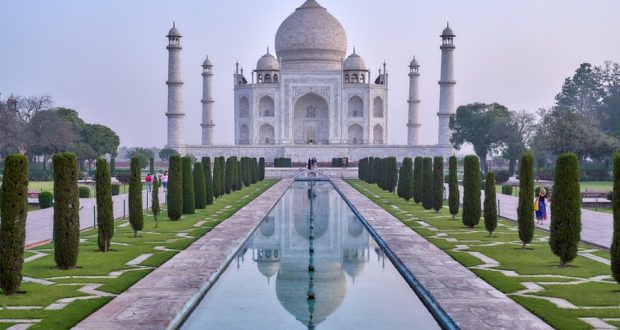Travel to India is looking like a real possibility as India announced they’re reopening to fully vaccinated foreign tourists traveling on chartered flights.
According to officials, foreign tourists on regular flights will be able to enter India starting from November 15.
This marks the first time India has allowed foreign tourists to enter the country since all the way back in March 2020. After which it announced the nationwide Coronavirus lockdown.
Before their arrival, tourists must be fully vaccinated and produce a negative test for the virus within 72 hours of departure.
It’s still not clear whether you will need to do mandatory quarantine on arrival like most other nations.
So Who Can Travel To India
Currently, India is allowing travelers from the following countries:
- UK
- Europe
- The Middle East
- South Africa
- Bangladesh
- Botswana
- China
- Mauritius
- New Zealand
- Zimbabwe
The High Commissioner to India said on October 7, Indians who wish to travel to the UK and are fully vaccinated with Covishield or any other UK-approved vaccine will not be quarantined when they arrive in Britain.
As COVID-19 cases continue to decline after a devastating second wave, several states and union territories have eased travel restrictions.
Some states, such as Uttarakhand, Delhi, and Maharashtra, have removed restrictions on air, rail, and road travel.
Entry Requirements
There are still strict entry requirements to enter India.
Any individual showing symptoms will be taken to the nearest medical facility. For anyone other than returning Indian nationals, land borders are still closed.
In order to enter India, all travelers must obtain an Air Suvidha Self Declaration Form for India form and submit it on the Air Suvidha Portal.
You’ll also need to provide a negative PCR test taken within 72 hours of the journey.
Travelers must also agree and declare via the portal that they will quarantine at home or accommodation.
For travelers arriving from the UK or the Middle East, they must complete the same form, providing details of their travel history over the past 14 days, and any connecting flights on arrival in India, as well as providing a negative PCR test.
If travelers are on a connecting flight, they will undergo a further PCR test on arrival at their stopover.
This will come at their own expense and they will be segregated during flight or after disembarking. They must remain at the connecting airport until their results are negative.
Those whose tests are negative can catch connecting flights but must quarantine at home for seven days and retest at the end.
COVID Testing Ramped Up
COVID-19 tests are fast becoming more affordable for many in India.
Due to the development and building of components for the gold standard RT-PCR test at home, the country has been able to stop depending on imports and ramp up testing during the second wave of the pandemic.
With support from The Rockefeller Foundation, the Indian government, and Tata Consultancy Services, scientists at the Centre for Cellular and Molecular Platforms, or C-CAMP, in Bengaluru city are developing more affordable diagnostic technologies.
 Trip Alertz For Jetsetters, By Jetsetters
Trip Alertz For Jetsetters, By Jetsetters




